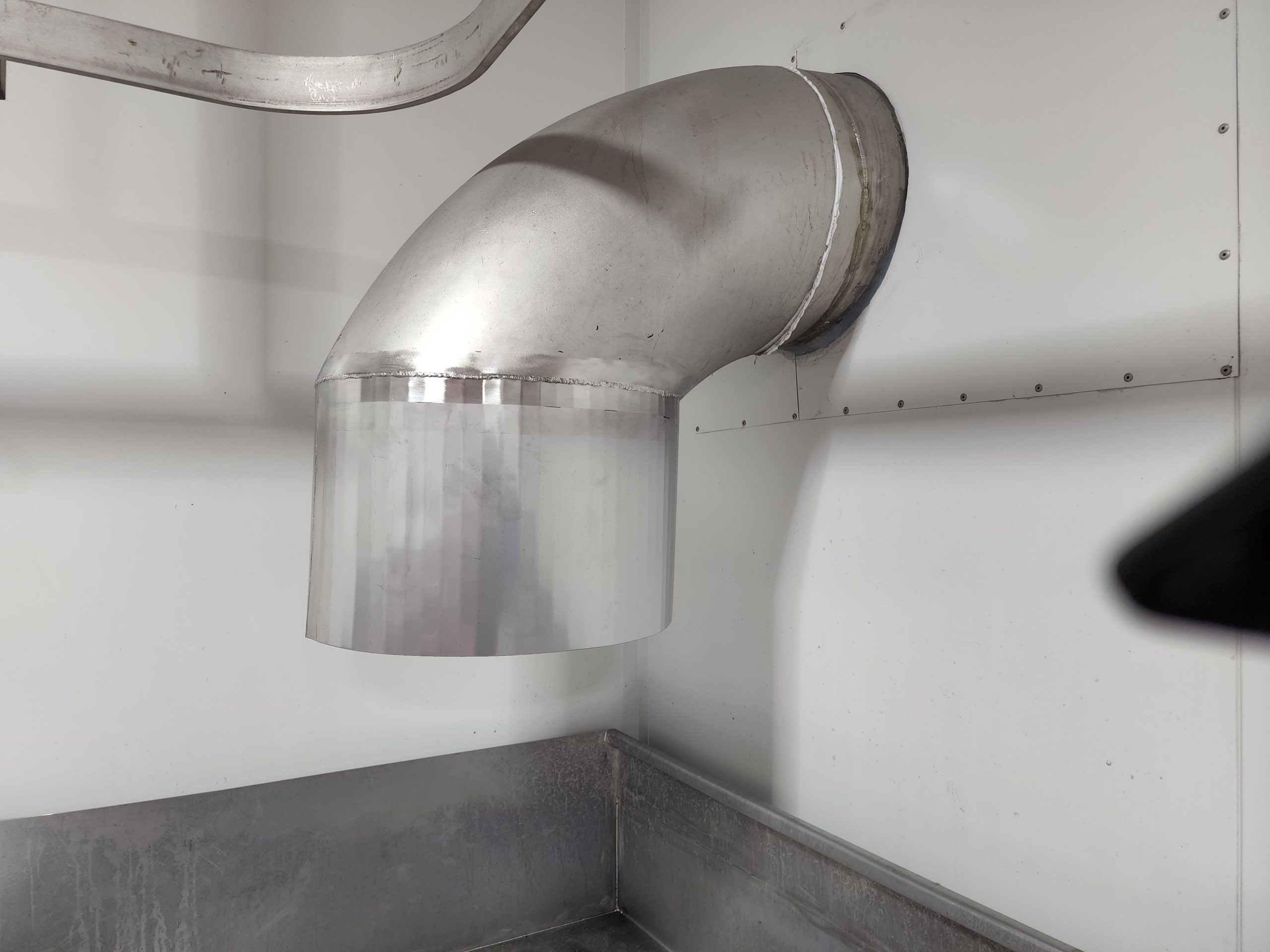Stainless steel sheet metal is widely used by fabricators around the world to create parts and components for various industries including construction, aerospace, automotive, medical, and marine. However, one sector that relies particularly heavily on stainless steel fabrication is the food and beverage industry.
In fact, over 30% of stainless steel production is dedicated to manufacturing equipment and processing systems for food and beverage applications.
Stainless steel refers to a group of steels known primarily for their resistance to corrosion. This resistance comes from the addition of at least 10.5% chromium to the alloy, which forms a protective oxide layer on the steel’s surface—making it up to 200 times more resistant to corrosion compared to steel without chromium.
But corrosion resistance isn’t the only reason stainless steel is a preferred choice for food-related equipment. Let’s explore five key benefits of using stainless steel sheet metal fabrication in the food industry:
1. Food-Grade Safety
The main reason stainless steel is favoured in the food sector is its natural corrosion resistance. The chromium oxide layer on its surface ensures it is nonporous and hygienic. Food-grade stainless steel typically contains high levels of chromium (16–18%) and nickel (8–10%), enhancing its biocompatibility and making it safe for contact with a variety of food and drink products. Austenitic grades 304 and 316 are especially common in food processing due to their superior chromium content.

2. Excellent Mechanical Properties
Stainless steel offers numerous mechanical advantages suitable for food industry applications. It is strong and durable, withstands both high and low temperatures, and is easy to shape and fabricate. Additionally, it requires minimal maintenance, is long-lasting, and presents a clean, attractive finish—all of which make it highly suitable for fabricating food processing equipment.
3. Preferred Material for Food Processing Equipment
Because of its hygienic qualities, stainless steel is the top choice for manufacturing food and beverage processing machinery. In Australia, this material aligns with key sanitary design standards such as the AS 1528 series for hygienic tube and fittings, which ensure cleanability, corrosion resistance, and mechanical integrity in food-grade systems. These standards support compliance with the Food Standards Code (FSANZ Chapter 3.2.3), which requires equipment to be constructed of materials that are non-toxic, smooth, and easy to clean, helping to prevent contamination and promote food safety.
4. Versatile Formability and Longevity
Stainless steel’s excellent formability and weldability allow fabricators to produce complex shapes and custom designs required by the food industry. Combined with its corrosion resistance and hygienic surfaces, stainless steel equipment can be sterilised repeatedly without losing its integrity, making it a highly reliable and durable choice.
5. Easy to Clean Surfaces
The smooth, nonporous surface of stainless steel makes it perfect for maintaining hygiene in food production. It is widely used for industrial food processing tanks, refrigeration units, sinks, countertops, and kitchenware such as cookware and cutlery. Since stainless steel doesn’t absorb flavours or germs, it can be cleaned effectively to remain safe for food contact.




